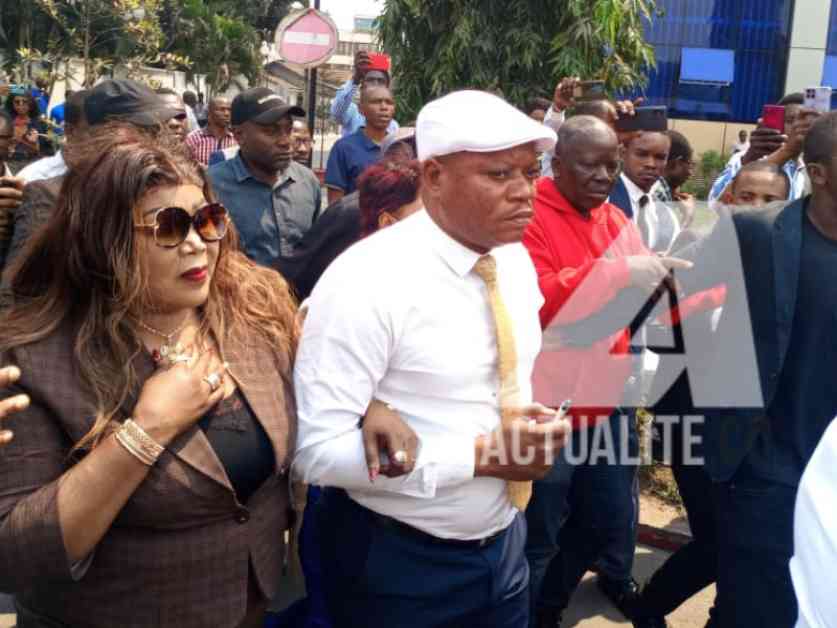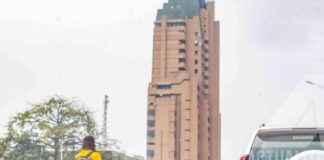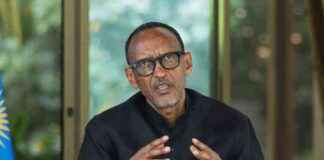Former leader of the ruling party (UDPS), Jean-Marc Kabund, was released from Makala Central Prison on Friday, February 21, 2025, after spending over a year behind bars. His journey through the legal system began in August 2022 when he was arrested, and in September 2023, the Court of Cassation sentenced him to 7 years of penal servitude. The court combined the sentences for all offenses attributed to the former First Vice President of the National Assembly. “For insulting the Head of State, four months; for spreading false rumors, 16 months. The court decided to cumulate the sentences for each offense,” stated Maître Kadi Diko, Kabund’s lawyer. She expressed regret over the severity of the 84-month sentence. Now, as Kabund walks free, his case continues to be a focal point of national debate, with the public eagerly awaiting the outcome.
Facing a total of twelve charges, Kabund’s legal battle has been a tumultuous one. Accusations include disrespect towards the country’s institutions such as the Parliament, Government, and an insult to the Head of State. These allegations stem from a statement he made during a press conference in July 2022. His party, the Alliance for Change (A.ch), has staunchly defended him, labeling Kabund as a “hostage” of the current regime. They highlight a previous decision for his placement under house arrest, a measure overlooked by the prosecution. Beyond the specifics of the case, the Kabund affair raises broader questions about justice and politics in the Democratic Republic of Congo (DRC), with A.ch supporters closely monitoring developments in Kinshasa.
Challenges of the Legal System
Kabund’s case sheds light on the complexities and challenges within the legal system of the DRC. The legal proceedings, from arrest to sentencing, have been closely scrutinized by both local and international observers. The handling of the case has brought into question the transparency and effectiveness of the judicial system in the country. As Kabund navigated the intricacies of the legal process, his supporters and critics alike have voiced concerns about the fairness and impartiality of the proceedings.
Expert legal analysts have weighed in on the case, offering insights into the legal implications and potential ramifications of Kabund’s release. According to legal experts, the decision to release Kabund raises important questions about the balance between freedom of expression and government accountability. The case has sparked discussions about the boundaries of political discourse and the role of the judiciary in upholding democratic values. As the dust settles on Kabund’s release, legal scholars and human rights advocates continue to monitor the situation, highlighting the broader implications of his case for the rule of law in the DRC.
Impact on Political Landscape
The Kabund affair has reverberated throughout the political landscape of the DRC, stirring up debates and controversies. His release from prison marks a significant moment in the country’s political history, with implications for future political discourse and dissent. As Kabund re-enters the public sphere, his supporters are hopeful for a new chapter in his political career, while his detractors remain skeptical of his intentions. The political fallout from the case is likely to shape the upcoming elections and influence the trajectory of political parties in the country.
Political analysts have highlighted the strategic implications of Kabund’s release on the balance of power within the ruling party and the broader political spectrum. His return to the political scene could potentially reinvigorate his support base and galvanize opposition to the current administration. As Kabund navigates the challenges of post-prison life, his actions and statements will be closely monitored by political observers and the public alike. The political future of the DRC hangs in the balance, as the repercussions of the Kabund affair continue to unfold.
In conclusion, Jean-Marc Kabund’s release from Makala Central Prison marks a pivotal moment in the intersection of law and politics in the DRC. His legal battle and subsequent release have sparked a national conversation about justice, politics, and the rule of law. As he steps back into the spotlight, the impact of his case reverberates across the political landscape, shaping the future of political discourse and dissent in the country. The Kabund affair serves as a reminder of the delicate balance between individual freedoms and governmental authority, highlighting the ongoing struggle for democracy and accountability in the DRC.

















